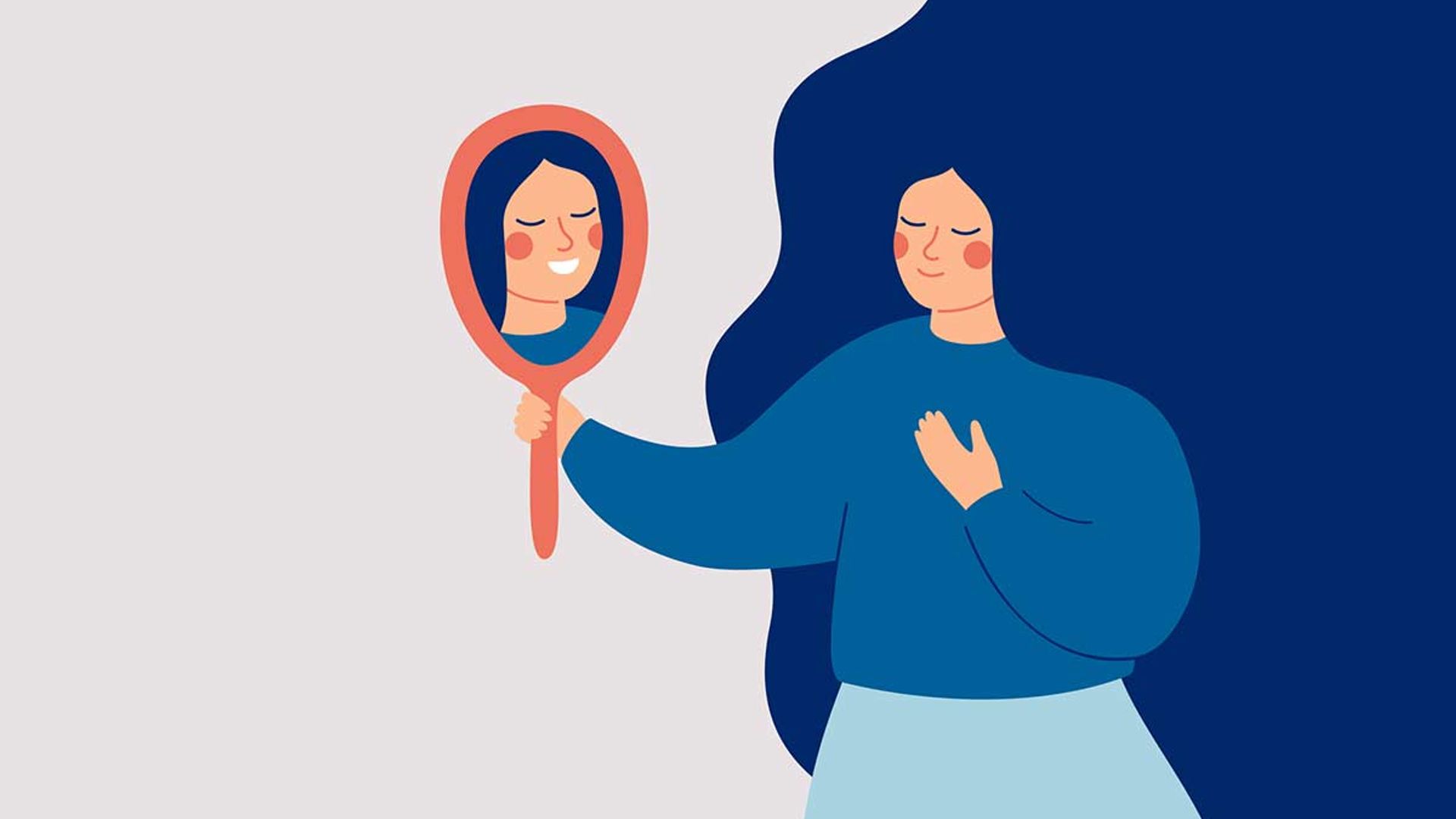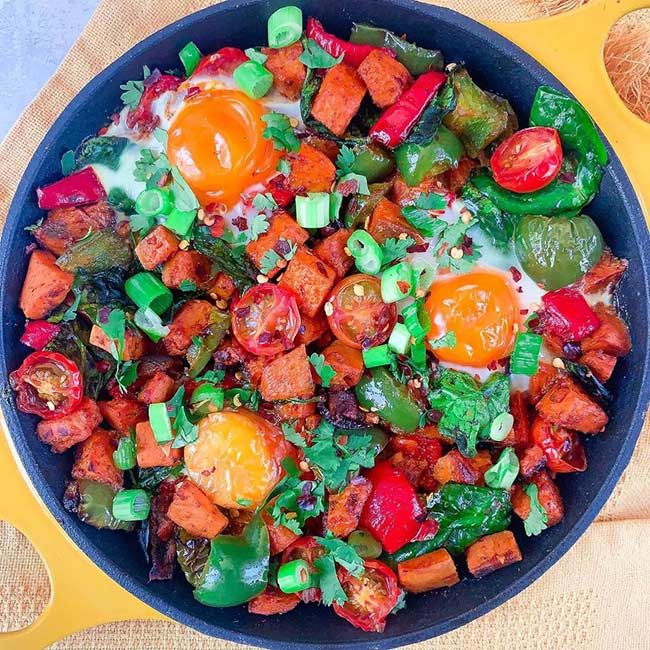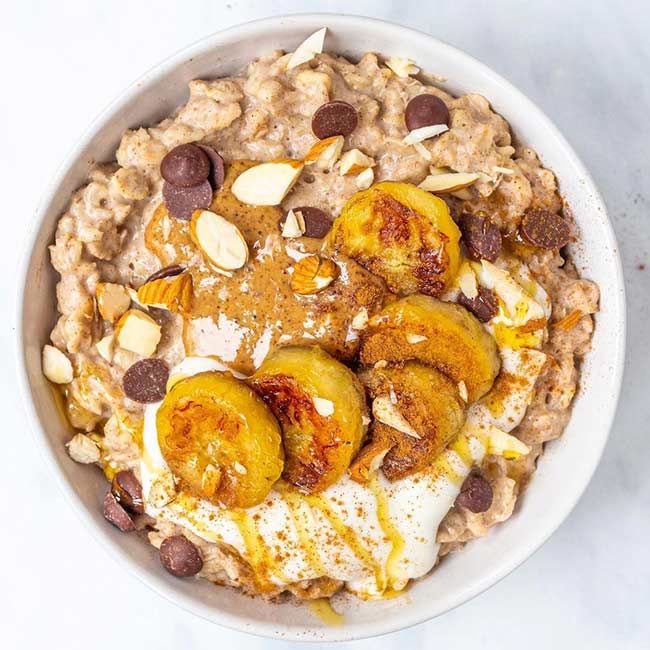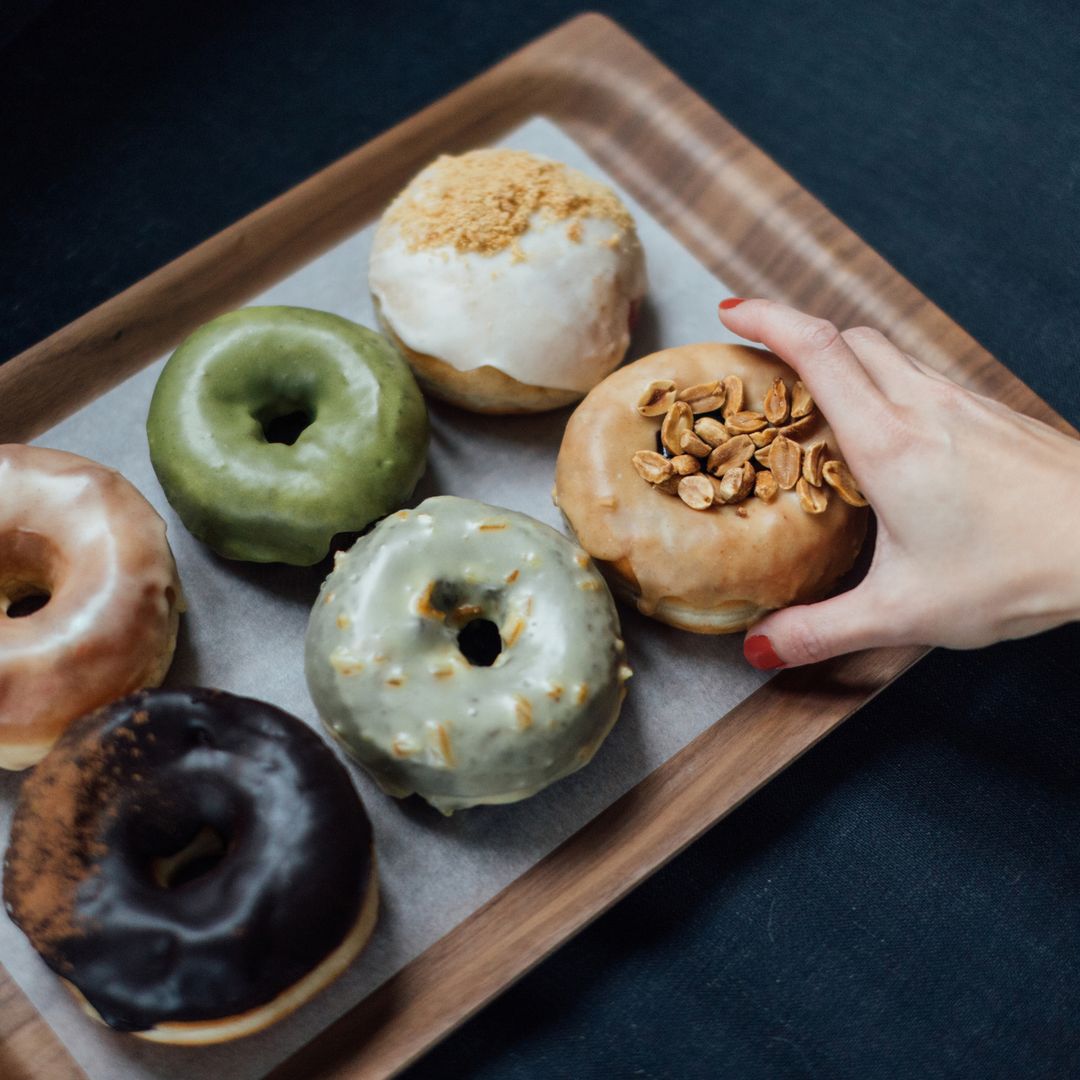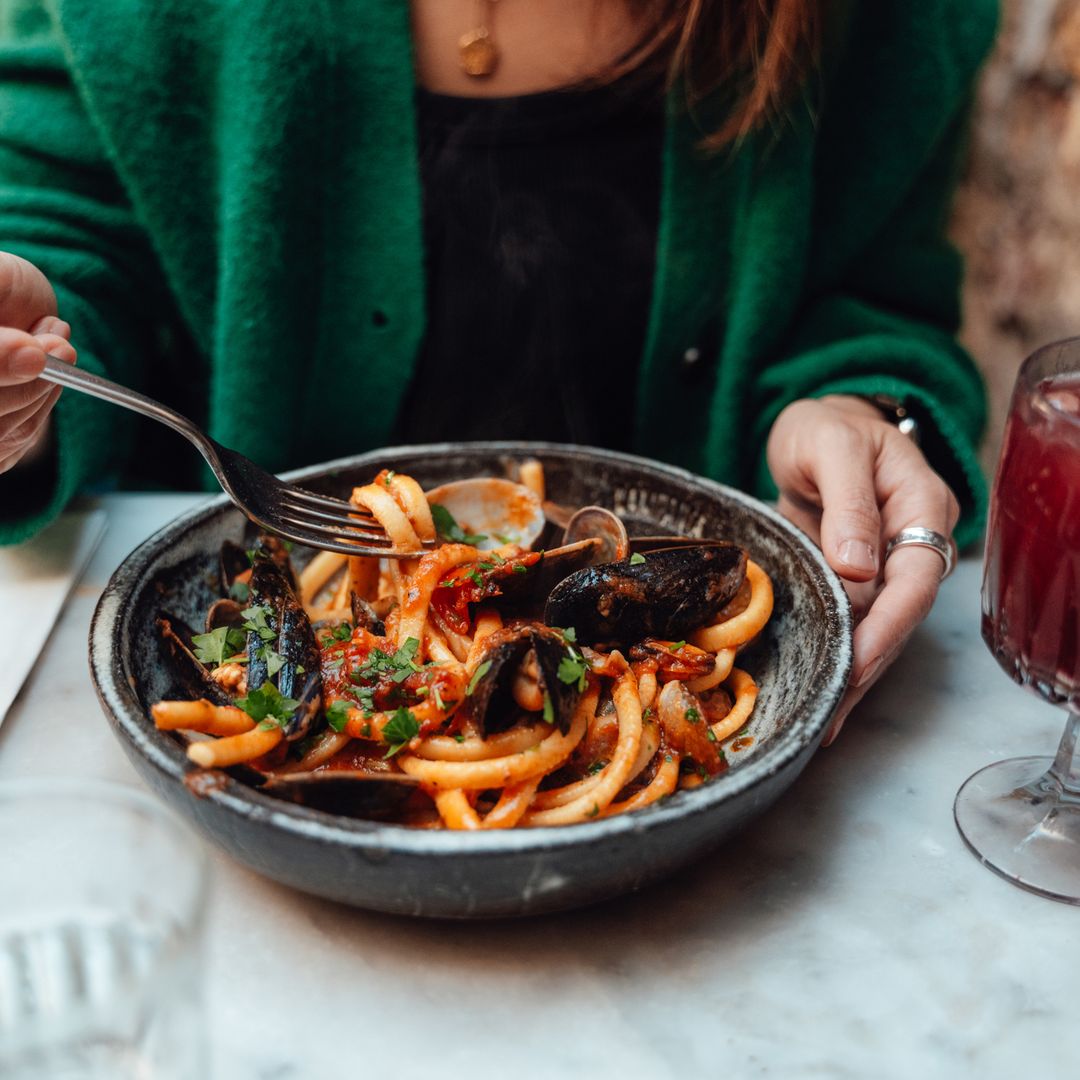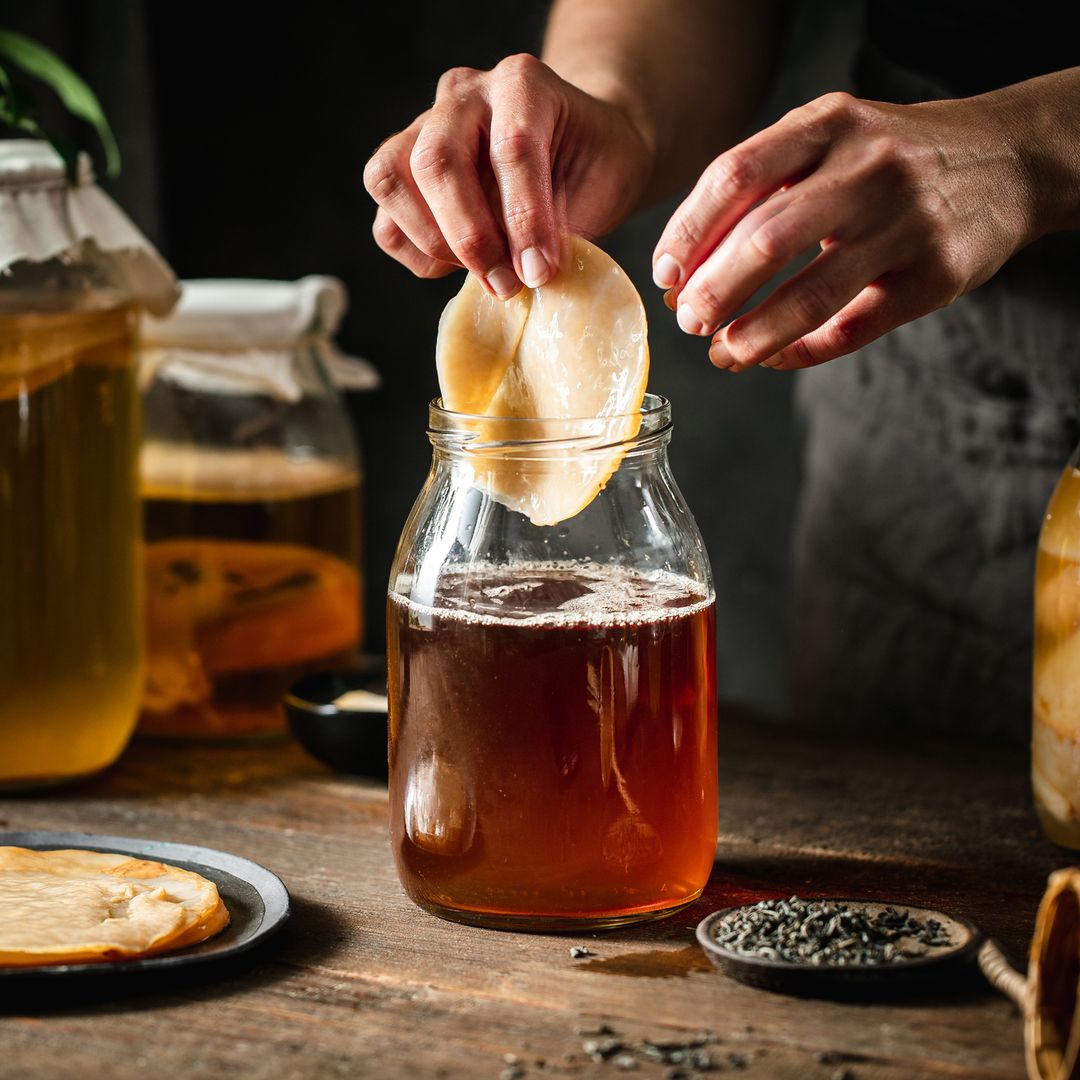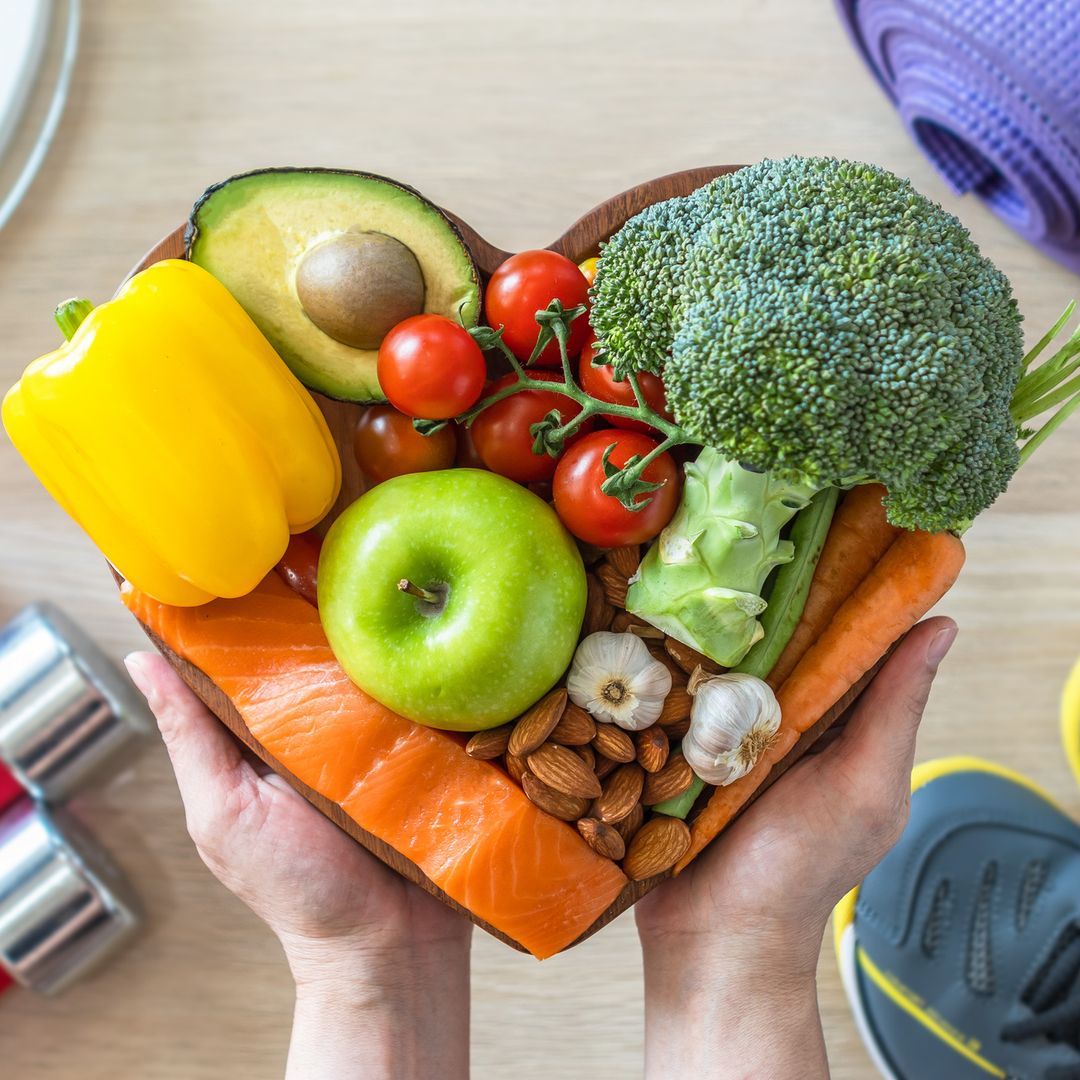As the UK prepares for normality to resume on June 21, the prospect of seeing people in real life again has caused mixed emotions among many of us. A crippling fear has set in about how our bodies have changed over lockdown, and with countless "summer body" memes circulating on the internet, it's no wonder we feel so self-conscious.
DISCOVER: 5 brilliant foods to boost your mood in lockdown
If you are thinking of embarking upon a crash or fad diet to drop a dress size in a flash, think again. While you might initially notice a physical change, your gut, brain function and mood can be seriously affected.
HELLO! spoke to Registered Nutritionist Rhiannon Lambert, founder of London-based nutrition clinic Rhitrition, about the dangers of "unsafe and unsustainable" crash dieting and why it should be the last thing on your mind come June. Read on for her expert advice…
Registered Nutritionist Rhiannon Lambert breaks down the myths behind crash diets
What is a crash diet?
"A crash diet is something restrictive, fast, and promises unsustainable claims," explains Rhiannon. "It's putting a number target on an unsafe amount of weight to lose a week." Anywhere above 1.5 pounds a week is the mad marker!
"I think the reality is, it's not aimed to help people lose weight long term," the Food For Thought podcast host says. These kinds of diets are unsustainable and can "confuse people, giving them a mistrust in health professionals".
READ MORE: 7 of the royal family's favourite takeaways revealed – from curry to Nando's
ROYAL FOOD: Duchess Kate's daily diet: the royal's breakfast, lunch and dinner revealed
The words 'crash diet' sound extreme - and quick. Something people favour when it comes to losing weight, Rhiannon explains. "Everything else takes a lot longer, that's why I think people end up falling into these traps," she adds.
According to a survey by One Poll, the average person will try 126 crash diets in their lifetime. That's two a year - and most of them are abandoned after just six days!
How does a crash diet affect your body?
"You will lose a hell of a lot of water weight and excrete a lot of glycogen, which is stored carbohydrates", Rhiannon explains.
And with restricted carbs (which also means restricted energy) comes less water retention. Deceivingly, in the initial stages it will seem like the crash diet is working, but you're actually just losing water from your body. Water loss means you run the risk of dehydration, which can manifest in dizziness and headaches.
Secondly, limiting carbs has a major effect on your mood. Rhiannon explains: "When you go on faddy diets, you get tired, lethargic, moody and grumpy", revealing that your brain is being starved of its optimum fuel. It'll then start looking elsewhere for other energy sources to burn: proteins and fats - a much longer and tougher process.
From this, some unpleasant side effects could emerge - bad breath being one of them. Um, no thank you!
There's more. The ramifications can be vast; the nutritional deficiencies faced could "impact fertility, mental health, skin, the condition of your organs, everything! Your bone health even," according to Rhiannon.
Your immune system can also be affected, making you more susceptible to picking up infections - not the best news in the midst of a global pandemic.
Carbs aren't bad! Restricting carbohydrates can have serious side effects
How does a crash diet affect your gut?
Did you know your body houses trillions of microorganisms in its gut called microbiota? These are crucial to our digestion and break down vital nutrients our body needs to absorb, but can't do naturally.
They also contribute to your metabolism, body weight, and immune regulation – so when key nutritional components like carbohydrates are restricted, this microbiota becomes unbalanced and ill-functioning.
MORE: How to beat lockdown blues with exercise and dismantling 'toxic' diet culture
"People don't usually think, 'What's going on inside me and how is this going to impact [my body]' when they reintroduce foods they were eating before," explains Rhiannon.
Reintroducing those foods after a period of crash dieting will likely cause your body's fat cells to inflate – and fast – which can cause you to regain the weight you worked so hard to lose.
Don't be disheartened, because this may be your body's way of getting itself back to where it wants to be.
What is the best weight?
Ever heard of set point theory? No, we're not talking about tennis. Set point theory states that our bodies have a unique weight range and baseline wired within our DNA.
With wiggle room for two or three kilos either way, this is where your body is at its best, optimum weight range - a range your body will fight to stay inside.
"An optimum weight range is where you're happy, healthy and free from illness… but these faddy crash diets don't tell you that," Rhiannon says.
The thing about set point is, if you dip under or over your ideal weight, your body will naturally try to get you back to that prime range with a little help from the hunger hormone, ghrelin, whose release is stimulated after weight loss. Mother Nature sure knows best!
Rhiannon is the founder of private nutrition clinic Rhitrition
Will eating salad help me lose weight?
Alone? In short, no. Food is not simply good or bad. Your meals must be nutritious to keep your energy high and blood sugar levels balanced.
"Even a burger and fries can have more nutrition than a leafy salad - as bizarre as that sounds," Rhiannon reveals.
Celery juices and salads seem healthier choices at the time, but unfortunately, this restrictive diet won't give your body what it needs.
RELATED: 12 best fitness apps to download in 2021 to help you smash your goals
ROYALTY: 9 simple ways Meghan Markle stays fit and healthy
With the famous saying, "everything in moderation" in mind, dig into that burger! They contain carbs, protein, and a handful of vitamins and minerals - everything your body needs for optimum performance.
What about the impact of social media?
As a society, 'likes' are what we live for these days. From fitness challenges to weight loss memes, social media's influence can be dangerous, especially around dieting and body image.
With little to do in isolation, a focus on eating and weight control has become a dangerous way of coping for many over lockdown, with calls to eating disorder charity BEAT rising by a staggering 173 per cent between February 2020 and January 2021.
Rhiannon says: "Social media seems to go right into this diet culture mindset, and this trap is setting people up for a level of anxiety, and even failure, that can trigger a food cycle again or something a bit sabotaging.
"That psychology and that internalised voice has probably got bigger for a lot of people. We know that the cases of eating disorders have actually tripled [during lockdown]".
By encouraging people to hit fast dietary deadlines, talking about weight and body image on social media platforms will subconsciously fuel your inner critic.
Adopting a healthy, balanced diet is always best
What can we do to help ourselves?
If you've gained a few extra pounds in lockdown, remember, you're not alone. Change is difficult, but be kind to yourself – you've made it through a pandemic, after all.
"Say: 'I accept this now and I can change it, but I will do it on my terms,'" advises Rhiannon, who suggests not setting unattainable, time-restricted goals.
If you feel like you need help, seek out a professional for tailormade advice. Two or three sessions may actually work out cheaper for you than embarking on a crash diet. Listening to your body is important, too. If you want chocolate, have chocolate - don't deprive yourself of the odd treat.
Still wanting to give that fad diet a go? Just keep this Rhitrition tip in mind. Say to yourself: "Could I be doing this for a year? Will it fit into my lifestyle? And lastly, will I feel great?"
"It's not about how you look, but about how you feel", Rhiannon concludes.
READ: 14 wellness trends to try in 2021 that will help manage your anxiety
Rhiannon Lambert is a Registered Nutritionist and the founder of Rhitrition, London's Leading Private Nutrition Clinic. Follow her on Instagram @rhitrition or visit rhitrition.co.uk for more information.
Like this story? Sign up to our newsletter to get other stories like this delivered straight to your inbox.
